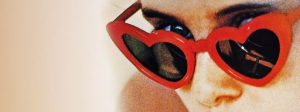Joan Didion’s enduring popularity among today’s young readers is a somewhat mysterious phenomenon. So many visibly progressive, literary types seem to uncritically worship her. Really? I always think to myself, concerned that I’ve misheard them. Joan Didion, the National Review contributor? Joan Didion, the socially nostalgic Goldwater Republican? Easily disturbed by counterculture, dismissive of women’s liberation, regarded John Wayne as the paragon of masculine sexual allure? That Joan Didion? I mean, I know why I like her, but why do you?
Evidently, the image of Didion that has entered popular consciousness — the Didion who modelled for Céline, had a Netflix hagiography made about her, and smokes languidly in black and white photographs on the bonnet of her white Corvette — is an easy object for (as the young themselves might put it) an exclusively vibes-based admiration. At a recent house auction of Didion’s personal effects, which took place shortly after her death in 2021, lot 122, a bundle of 13 notebooks, sold for $11,000. That the notebooks were entirely blank seems a fitting testament to the vapid high regard bestowed on her by modish fans who value her more for her aura than for the things she wrote down.
Very few writers, of course, deserve to be judged on the basis of the fans and acolytes they inspire. That this is so in Didion’s case is rather heavily underlined by a recently published memoir by the American writer Cory Leadbeater. The Uptown Local: Joy, death and Joan Didion is his account of the nine years he worked as Didion’s personal assistant, living rent-free in her magnificent apartment on the Upper East Side. While still an undistinguished creative writing student at Columbia, Leadbeater informs us, he dined with the great and the good of New York, his life taking on the character of a “ludicrous fantasy”. In fact, it would be easy to resent Leadbeater for his good fortune alone were it not that his book provides a wealth of other, more compelling, reasons.
Cory Leadbeater has achieved something frankly remarkable. He saw Joan Didion more or less every day for nine years, yet he has not a single interesting or original thing to say about her. Indeed, a few chapters into the book, she more or less vanishes. Instead, we learn a great deal about Leadbeater’s unhappy, though not deprived, childhood in New Jersey; his tortured inability to write a novel; and his hatred for his difficult father, who hit him as a child, and was later jailed for real-estate fraud. Nor is Leadbeater’s side-lining of Didion evidence of tact towards his late employer. “I confess,” he writes, “that there’s no one and nothing I wouldn’t put into this book if it meant I could make something beautiful and lasting… has it worked?”
Well, no. It hasn’t. The Uptown Local is a staggeringly tedious book. Nauseatingly self-involved, it inflicts an enormous punishment on the reader lured in on the understanding they were going to find something out about Joan Didion. It must be conceded, though, that in its way the book is oddly representative of the maddeningly over-produced genre of highly literary first-personal non-fiction, which publishers seem never to tire of inflicting on what remains of the contemporary reading public.
It is no small irony, of course, that the alienated, inward-looking style Leadbeater adopts is one Didion did so much to popularise. In the wrong hands, as Leadbeater proves, it is a truly dangerous inspiration. Consider the scene after Didion’s death on 23 December: “I took down her Christmas tree through tears. The tears were because the metaphor was so obvious that it was just the kind of thing we would have laughed about.” Note, this is a man who cries not about people, but about the obviousness of metaphors. In fact, none of life’s revelations are equal to disarming Leadbeater’s unerring instinct for pretension. In another scene, his wife tells him she is pregnant; “I made her stand in front of the giant Auden portrait in my office and hold the test up, and I took a photo.”
Leadbeater seems at times simply unable to describe things in a way that isn’t cloying and affected. He is full of enigmatic bon mots and non-sequiturs. “I was someone who wanted nothing, who required nothing and so I could be anything”; “Death is not an illusion but the meaning we invent for it most certainly is”. Quirky detail accumulates to no purpose other than to create the illusion of depth. Did you know, for instance, that Didion “ate vanilla ice cream with a fork”? His fussy, but confused, instincts sometimes get him into terrible tangles. “I was hit by my father,” he tells us: actually, “‘beaten, not hit’, I can hear my adult self-correct me”. (What distinction does he think he is marking here?) “Do you know how improbable that is… or unlikely, I should say.” (Ditto.) “Leadbeater”, “with an L”, he insists when introducing himself. (Eh?)
Though Leadbeater must be well into his thirties, he possesses a largely adolescent ego. “There is nothing I cannot do,” he announces, weirdly. “I am in possession of the world’s most powerful imagination. It burns through ideas faster than forest fires, it explodes with meaning where meaning only begins to exist.” Of course, Leadbeater might plead insincerity when he says things like this, but then that too would be part of the problem.
Once installed in Didion’s home at the recommendation of a friend, Leadbeater dines “with Oscar winners, California governors, and Supreme Court justices”, though we are not allowed to hear much about those, potentially interesting, people. He is aware that Didion’s “rarefied” friends don’t like him, and he is constantly fearful of displaying “a too-conventional enthusiasm”. In place of interesting material, there’s much grandiloquent description of his various failed book projects.
He spends hours alone watching CCTV footage of school shootings on his laptop. Surely, “there was a poetry of Inclusion that could cure all this”? By writing about it, perhaps “I could cure myself of having lived through such a violent era”. The fruit of these heroic labours is an “epic” book-length poem aiming to “synthesise the violent events of our time — the Oklahoma City Bombing, Columbine, 9/11 — into an idea about what was rotten at the core of the American Psyche”. (Thanks are presumably owed to the New York publishing industry for quarantining this early effort.) “Day after day rejections poured in.”
Leadbeater often thinks about killing himself. “For long stretches I was untying my shoelaces and crossing 72nd street against traffic, hoping I would trip and fall beneath a delivery truck’s wheels.” Less slapstick forms of suicide are considered too — but all such malaise is chalked up as evidence of his personal depth: “Folks who find reality inadequate are apt to go looking for better or different things elsewhere.” Despite this suicidal ideation, his predictable reaction to the arrival of Covid is to acquit himself like a preposterous drama queen. “I wore a cloth mask over a hospital mask, I wore black latex gloves, and I sometimes wore sunglasses.” When his father sets foot outside “without a mask”, he loses it: “You’re going to get us fucking killed.”
The kind of literary environment that encourages books like The Uptown Local to be written cannot be an entirely healthy one. In fact, it is the kind of book that could confirm one’s worst instincts about contemporary publishing: that it is an industry overpopulated by wet English graduates who are readily won over by superficial displays of erudition and who, as a professional cohort, are nowhere near as afraid as they should be of being called out as phonies.
The disappearance of the reading public has likely played a role in this collapse in standards by removing any mechanisms of critical accountability. Unburdened by any awkward commercial imperative to sell books, it must be all too easy for today’s writers to navel-gaze as if no one is reading, because all too often nobody is. In Leadbeater’s preening assessment, Joan Didion’s greatness — her “real gift” he says — is that “she gave me permission to be myself in toto”. You do not have to admire Joan Didion as much as I do, or Leadbeater as little, to find this a simply bizarre assessment of what made Joan Didion great.
Disclaimer
Some of the posts we share are controversial and we do not necessarily agree with them in the whole extend. Sometimes we agree with the content or part of it but we do not agree with the narration or language. Nevertheless we find them somehow interesting, valuable and/or informative or we share them, because we strongly believe in freedom of speech, free press and journalism. We strongly encourage you to have a critical approach to all the content, do your own research and analysis to build your own opinion.
We would be glad to have your feedback.
Source: UnHerd Read the original article here: https://unherd.com/



